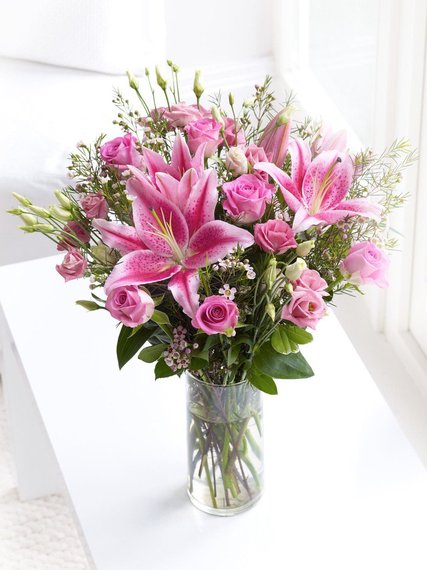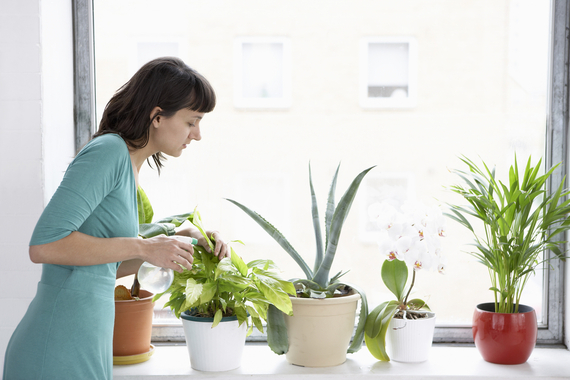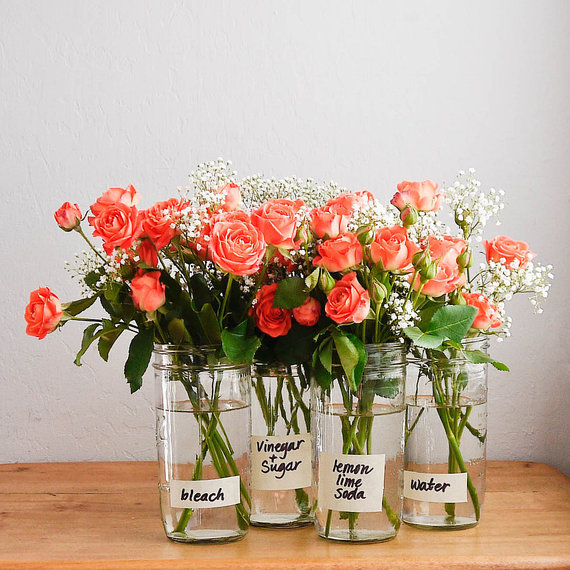Ever wondered why most freshly cut flowers you received during special occasions ended up in the trash early? Well, it's simply because, they don't receive proper care. Just like other living things, flowers also need nourishment to live.
Flowers aren't only restricted to gifts or occasions, but can also be used for decoration, food, healing and more. In order to help them last longer, it's important to recognize the specific purposes you plan to use them and then treat them accordingly.
Whether you've just received a bouquet, started a new gardening process or decided to start decorating your house with flowers, it's time to get knowledgeable about the right ingredients needed to help them last longer.
Here are some guidelines to help you get started:
1)Change the Water Regularly & Feed the Flowers
One of the obvious reasons flowers wither easily is because of dirty vases and contaminated water, due to bacteria in them. If you plan to preserve flowers for a long time, it's advisable to change the water once a day. Use a clean vase to ensure that germs don't stick, thereby preventing any plant ailments that might arise.
Don't think it's only human beings and animals that need food. Flowers also need the right amount of food to live longer. While different flowers might need specific kinds of flower food, consider using organic preservatives to help provide them with nutrients to increase their lives. However, most florists add the right flower foods to every bouquet or delivery to help lengthen the life of the flower.
Don't also forget that in some cases, you'll need to treat the water and fill the vase with room temperature water. Pay close attention to any debris floating in the water (such as leaves and stem parts). Such particles also contribute to bacteria growth and shorten the flower's lifespan.
2)Take Care of the Stems
Stems vary and would normally require different kinds of treatments in order to keep them looking fresh. Every few days, re-cut the stems, about 3/4" to one inch from the bottom of the stem. Use a floral cutter or scissors and cut them at a 45 degree angle. Avoid pressing against the stem as this can prevent it from absorbing water if the water vessels are destroyed. For woody stems like lilacs, split the bottom inch of the stem to help it absorb more water. For a bunch of flowers, consider tying the edge of the stems together to ensure a uniformly cut pattern.
3)Watch the Temperature
Flowers need to be kept in the right environment in order for them to receive adequate amount of air and heat. Most times, it's best to keep them in a neutral environment to avoid them being too hot or cold. Some flowers thrive in temperatures between 65 to 72 degrees Fahrenheit and are best displayed away from sunlight, heating or cooling vents, directly under ceiling fans, or on top of hot platforms that give off heat and cause dehydration.
Taking care of flowers can be a bit tasking, but once you get a certain procedure that work right, you'll be on your way to helping flowers and also plants in general to live longer. By checking the flowers regularly, keeping the vase and water clean, feeding them with flower food and keeping them in the right temperature, you'll become a pro in no time. Regular check-up is the best way to keep those flowers breathing and living healthier. If eventually the flowers die, there are other ways to preserve flowers to make them serve you further, instead of discarding them.



